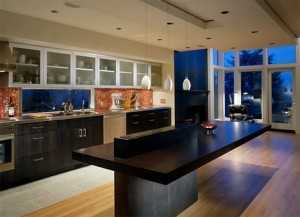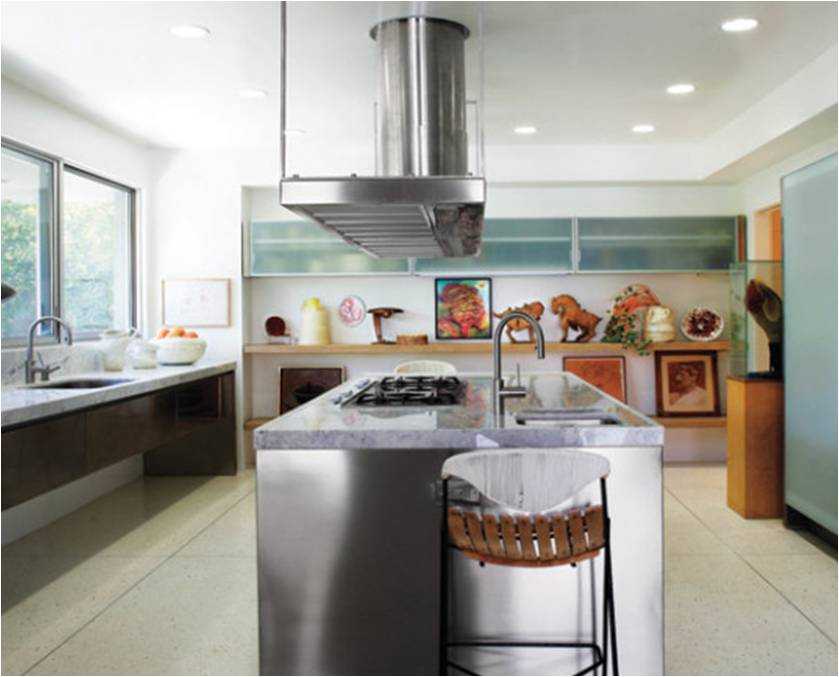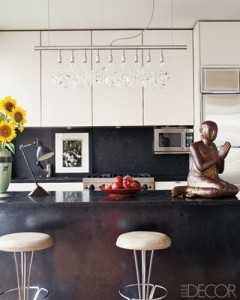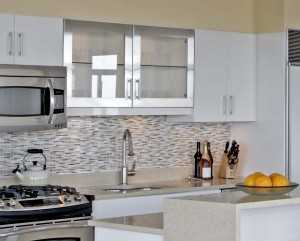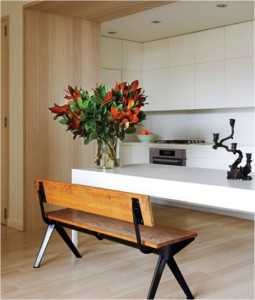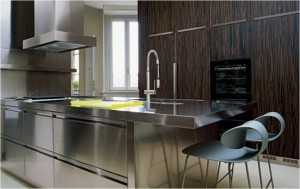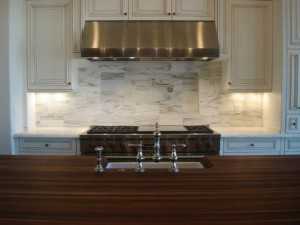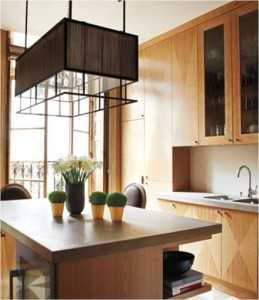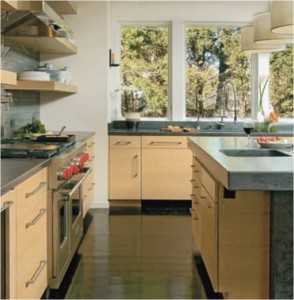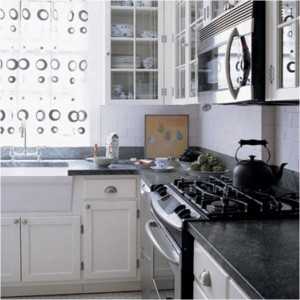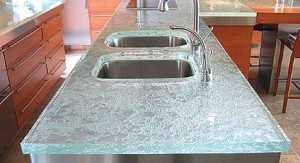Renovating your Kitchen and feel overwhelmed when it comes to a choice of countertop material?
I certainly have my thoughts on what's best, and tend to steer clients toward engineered stone countertops like Silestone and Caesarstone, mostly because of their low-maintenance, durability, and GreenGuard certification.
Below is a great guide from Apartment Therapy, that can help you to make the decision for yourself:
If you've ever undergone a big kitchen renovation, you know about the dizzying array of options for kitchen countertops. With new materials being developed all the time, how do you sift through the marketing folderol and make an informed decision? Here is a roundup of several popular options, with pros and cons for each…
These materials range from natural to synthetic, from inexpensive to very pricey, from practical to … less practical. Some of the newer materials are particularly exciting, combining durability and function with sustainability and low cost. Let us know in the comments what your favorite is!
All prices are estimates.
Marble
Pros: Comes in a variety of colors and patterns, smooth surface, won't chip or dent, heat-resistant.
Cons: Expensive, can be scratched or etched by acids (citrus, coffee, alcohol, some cleaning products) even if you seal it. But if you are vigilant about spills and seal your counters a few times a year (you can do this yourself with a simple spray product) marble is a good option. $100-400/foot.
Granite
Pros: More durable than marble, won't scratch, resistant to stains, heat and water if sealed, low-maintenance, high resale value, lots of color options.
Cons: Expensive, requires resealing about once a year. $100-400/foot.
(Personally I don't ever use granite. It's dated, and too much maintenance. There are also sustainability issues including Radon content in granite.)
Engineered Stones (Silestone, etc.)
Pros: Nonporous, resists scratches and stains, easy to maintain, no sealant required. Looks like natural stone (it's at least 90% quartz) but can be mixed with pigments for custom color.
Cons: Not heatproof. $50-150/foot.
Brands: CaesarStone, Silestone, Cambria, etc.
Solid Surface (Corian, etc.)
Pros: Durable, smooth surface, can seamlessly integrate sink and backsplash, easy to sand away stains or scratches, lots of color and pattern options, can imitate other materials like concrete and marble.
Cons: Can be easily damaged by heat, easy to scratch and dent, can get stains. $45-150/foot.
Brands: DuPont Corian, Samsung Staron, LG Hi-Macs, ECO, etc.
Stainless Steel
Pros: Durable, stainproof, spillproof, temperature-proof, easy to clean and maintain, help reflect light.
Cons: Can nick and scratch, can show fingerprints, noisy. $100-300/foot.
Wood/Butcher Block
Pros: Good for chopping/prep surface, gentle on delicate glassware/china.
Cons: Easily damaged by burns, dents, spills and scratches, requires food-safe protective sealer, needs regular maintenance, will discolor if installed around the sink. $40-150/foot.
Ceramic Tile
Pros: Durable, easy to install and clean, heat and moisture-resistant.
Cons: Uneven surface, tiles can get scratched, cracked or chipped, grout can stain. $2-150/foot.
Lava Stone
Pros: Beautiful crackled finish, many color options, non-porous, highly resistant to heat, cold, stains and scratching, highly durable, low-maintenance.
Cons: Expensive, and there's a waiting list. At least $225/foot.
Brand: Pyrolave.
Concrete
Pros: Heat- and scratch-resistant, smooth, very strong, lots of texture and color options, pretty durable, can seamlessly integrate sink and backsplash.
Cons: Can get cracked, somewhat porous, must be sealed and waxed, needs to be custom cast (can be pricey to fabricate). Around $80-150/foot.
Soapstone
Pros: Fabulous natural grey color, smooth matte feel, resistant to etching from acids, somewhat resistant to stains, scratches can be easily sanded or oiled away, not as harmful to the environment as other quarried stones.
Cons: Needs regular maintenance, may crack, chip and scratch, color may darken. $75-150/foot.
Glass
Pros: Lots of color, shape and texture options, non-porous, heat-resistant.
Cons: Can crack, chip or break, can’t be repaired, must be replaced, scratches and fingerprints are visible. $60-300/foot.
Laminates
Pros: Stain-resistant, waterproof, lots of color options, low-maintenance, inexpensive.
Cons: Can crack and scratch, not heatproof, difficult to repair. $15-60/foot plus installation.
Brands: Formica, Wilsonart, Pionite, etc.
(I would suggest NOT ever using this material!)
Paper-based Composite
Pros: Green (made from recycled paper), very durable, harder than wood, somewhat stain- and heat-resistant.
Cons: Can scratch and stain, not totally heatproof, darkens over time, requires sealant, not a huge range of colors. $45-75/foot. Brand: Richlite, PaperStone, Shetkastone.
Bamboo & Paper Composite
Pros: Green, highly durable, won't discolor over time, scratch- and stain-proof, water-resistant, more light colors than Paper (above).Cons: Only 10 colors available, requires (infrequent) regular maintenance. $35+/foot. Brand: EcoTop.
I would love to hear from you! What experiences have you had with the above countertops? Let us know below...
For further reading, see our post What's lurking in your granite countertop?
